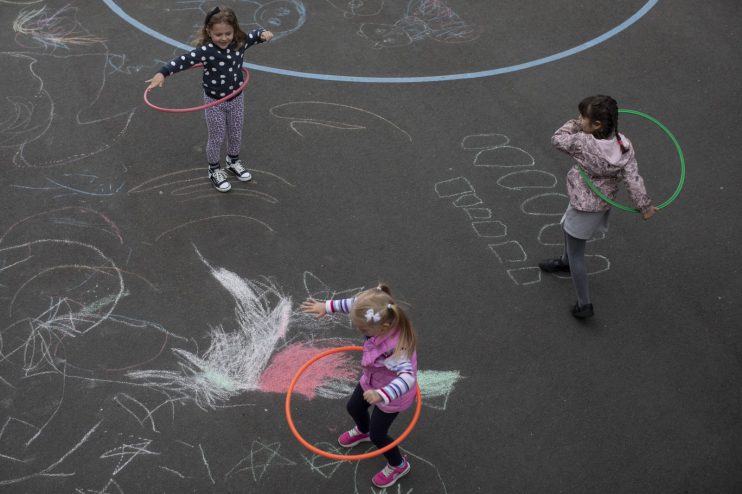A hidden mental health epidemic is threatening our children

The Covid-19 pandemic and resulting lockdown restrictions have given rise to a mental health epidemic that has swept through the UK.
The restrictive measures imposed earlier this year have already adversely affected children’s mental health, and continue to intensify the glaring disadvantages experienced by those living in some of the country’s poorest communities.
The figures are stark. The centre for Mental Health predicts that 1.5 million children and young people under the age of 18 in England will need either new or additional mental health support as a direct consequence of this crisis.
Indeed, as a survey conducted by the NHS during lockdown reveals that one in six children now have a probable mental health disorder, compared to one in nine just three years ago, the alarming state of young people’s mental health should be a pressing national concern. Anne Longfield, children’s commissioner for England, has said these devastating findings “should shock the government into immediate action to tackle a growing epidemic.”
To echo the children’s commissioner’s point, we can no longer afford to neglect the needs of children who rely on us for support. The pandemic has severely impacted children’s mental health, and threatens to do so again as parts of the UK fall under tiered restrictions reminiscent of the first lockdown.
Some things will be different, of course. In an effort to mitigate some of the educational risks, the government is attempting to protect childrens’ wellbeing by allowing schools to remain open, whatever Tier that area is in.
However, the newly imposed restrictions still have the potential to hamper the lives of children and degrade their mental health.
Schools may be operational, but an average day looks very different now compared to what our children are accustomed to. To reduce physical contact and curb the spread of the virus, schoolchildren are grouped in bubbles and asked to limit their social interactions at work and at play. Additionally, there has been a huge decrease in children’s movement, with pupils stuck sitting at their desks for hours on end.
These safeguards are for the purpose of reducing transmission and projecting public health, but they also risk promoting loneliness and isolation, as children are prevented from socialising and exercising with peers outside of their bubbles in a normal, active way.
In these challenging times, children living in poverty face added obstacles leaving them even more prone to a deteriorating mental health. Those living in poorer communities are less likely to have access to gardens or safe green spaces where kids can play and exercise, leaving them confined to their homes with little reprieve from the pandemic.
Our charity, which operates in nearly 50 schools in the most deprived parts of the capital, works to provide sports and mentoring sessions to the children who lack such opportunities elsewhere. At a time when so many are struggling in multiple ways, they need this kind of active, inspirational support now more than ever.
And yet, our coaches have been hampered in delivering sports sessions in full, because of restrictions around physical activity that schools feel they must enforce to reduce the risk of infections and forced school absences.
Thanks to the support of one of our key partners, the players of the People’s Postcode Lottery, we were able to adapt during the first lockdown and empower our coaches to stay in regular contact with the young people we support. In doing that we heard about the detrimental impacts of the lockdown first-hand from the kids and their parents.
Now we risk seeing the same thing again. And existing mental health struggles will only be compounded as the looming winter months mean children will inevitably spend more sedentary time indoors, rather than active time outdoors.
There has never been a more important time to prioritise physical activity, exercise, and sport. Exercise is demonstrated to help improve mental health, bolster feelings of self-confidence, and elevate an individual’s mood. With mental health issues reaching new lows, we need to ensure that children have accessible ways to engage in physical activity and sport.
So many of the headlines have focused on the pressure to preserve pubs and restaurants around the country. These are no doubt valuable, but now the government needs to refocus and extend a lifeline to gyms, sporting facilities and organisations that deliver physical activities for children, who are relying on exercise for a physical and mental boost more than ever in these dire times.
Unless governments and stakeholders step up, we risk exacerbating the very same mental health issues that spiked the first time around. A hidden epidemic is threatening our children, and we must do everything within our power to stop it.
Main image credit: Getty